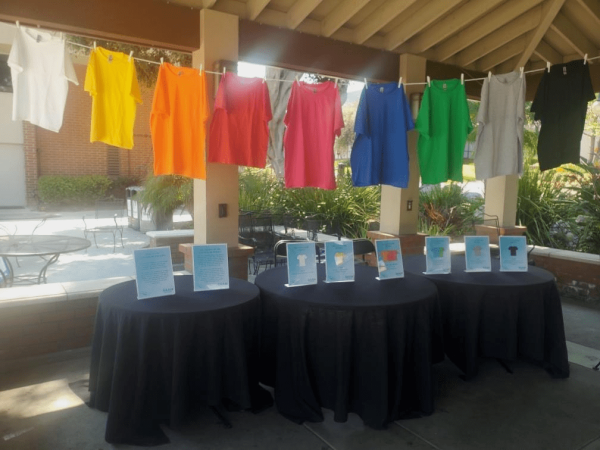Metzger expects steady enrollment
Administrators say they are optimistic about meeting their enrollment goals for fall 2010.
April 21, 2010
Despite budgeting for a flat enrollment and projecting no growth in student numbers for next year, administrators now say they are optimistic about meeting their enrollment goals for fall 2010.
Because student-generated revenue accounts for nearly 93 percent of the school’s operating budget, enrollment numbers are crucial.
Greg Vaughan, senior director of enrollment management, said the school must enroll 1,207 new students and 2,430 continuing students in order to meet its budget for the fall 2010 semester. He hopes the graduate program enrolls 594 new students. While it is still too early to tell if those numbers will be met, administrators say they are not planning for an enrollment decline.
“Every indicator is positive right now,” Vaughan said. “We’re moving forward with every hope and belief that the data is there that we can meet and exceed our goals.”
One reason for confidence is that enrollment was higher than expected on all fronts for the spring 2010 semester. Undergraduate admissions were up by 36 percent and graduate admissions 14 percent compared with spring 2009. Transfer students increased by 65 percent. Because of strong spring enrollment, Vaughan said the school can project an increase in the number of continuing students for the fall.
Applications are also at an all-time high, according to Vaughan. However, deposits are significantly behind where they should be, causing administrators to be concerned about commitment level. Recruiters are working hard to stay in touch with the admitted pool of students, encouraging them to finalize their decision.
“It’s clear that interest in Biola is very strong and people want to be here,” Vaughan said. “But it often comes down to finances.”
Biola experienced its first enrollment decline in 14 years last fall. Undergraduate admissions were down by 60 students, although the school received 300 more applications than normal. The unusual occurrence last semester underscores how difficult it is to make accurate predictions in the current economy, and administrators can only hope it does not happen again.
“It’s a big deal right now,” said André Stephens, senior director for undergraduate admissions. “With the economy the way it is, a lot of families feel the pressure more heavily to pay for a private school education.”
Jonathan Seruyange, assistant director of Financial Aid Counseling, said the school has seen an increase in need for students across the board and is doing what it can to help.
“We don’t get additional money during a time like this,” Seruyange said. “But one of the ways we’ve tried to help with the situation is to pay really close attention to the families who have been affected by layoffs from jobs and loss of business due to the economy.”
Seruyange said counselors work with students to ensure that their financial profiles reflect their actual level of need, so they can qualify for the most aid. Seruyange encouraged students struggling financially to talk to a counselor so they can review all their options.
Junior communications major Alyssa Morales remembers back to her freshman year when counselors worked around the clock to find a way for her to stay at Biola. As the first of her 11 siblings go to college, every year has been uncertain financially. She has to pay for school on her own. Despite working two jobs and maxing out every possible scholarship and loan, she has had to face leaving Biola multiple times.
“But God is faithful,” she said. “In my time here, I’ve learned nothing but His provision.”
Morales serves as president of the club “Miracle Babies,” which helps students in financial need. Every dollar that the club raises is matched by Biola’s Student Economic Relief Fund and goes toward scholarships.
“So often we hear of people who have to leave because of finances, or can’t come at all because they don’t have the money,” she said. “We want to see people who want to impact the world through their majors be able to do that.”
Administrators have the same vision as they recruit new students.
“We’re not going to twist any arms,” Stephens said. “But if the student is a good match for Biola, we want them to have the opportunity to come here.”






